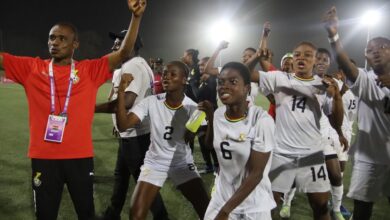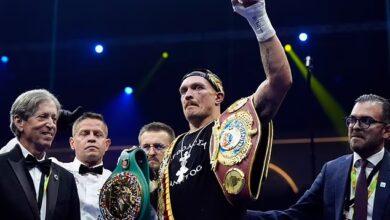
The Conservatives and Labour have faced a backlash at the ballot box over the Brexit deadlock, with smaller parties and independents winning seats.
With local council results continuing to come in for England and Northern Ireland, national politics seems to have been a deciding factor for voters.
The Tories have lost over 480 seats and 19 English councils so far, many to the resurgent Liberal Democrats.
Labour has also had a disappointing night, losing nearly 80 seats to date.
Speaking in Greater Manchester, leader Jeremy Corbyn said he “wanted to do better” and conceded voters who disagreed with its backing for Brexit had deserted the party.
But Lib Dem leader Sir Vince Cable said it had been a “brilliant” result for his party and “every vote for the Liberal Democrats is a vote for stopping Brexit”.
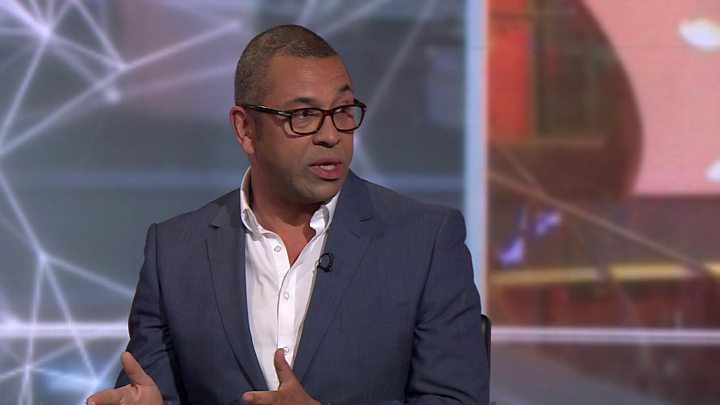
MPs have yet to agree on a deal for leaving the European Union, and as a result, the deadline of Brexit has been pushed back from 29 March to 31 October.
While local elections give voters the chance to choose the decision-makers who affect their communities, the national issue loomed large on the doorstep.
Brandon Lewis, Conservative Party chair, said voters had given his party a very clear message they were “fed up” with the Brexit deadlock and “they want us to get it done”.
- LIVE: Local election results and reaction as it happens
- Election results in maps
- Tories distance themselves from PM
- Local elections: The main parties punished
Polls took place for 248 English councils, six mayors and all 11 councils in Northern Ireland.
About 115 English councils had declared by 11:50 BST, with counting under way in many of the other 140 local authorities.
The first Northern Irish results are also starting to be announced. No local elections are taking place in Scotland and Wales.
BBC political editor Laura Kuenssberg said the results so far suggested both of the two main parties are being punished for their handling of Brexit.
The Conservatives have lost 480 seats so far, with some predicting that could rise to as many as 1,000 by the end of the day. The party has gained two councils.
The Lib Dems have enjoyed their best local electoral performance in years, gaining more than 300 seats so far – and control of eight councils.
North/south divide
Polling expert Prof Sir John Curtice said the days of the Conservatives and Labour dominating the electoral landscape, as happened in the 2017 election, when they won 80% of the vote between them, “may be over”.
“It looks as though the key message from the voters to the Conservatives and Labour is ‘a plague on both of your houses’, as they find themselves losing both votes and seats on an extensive basis,” he said.
- MP weeps as Tories lose comfortable majority
- Labour take Trafford scalp
- Independents celebrate council gains
But he warned it could be even worse for the two main parties at the European elections on the 23 May, when “new kids on the block”, the Brexit Party and Change UK, also compete for votes alongside the Greens and Lib Dems.
Prof Curtice said there was a North/South divide emerging in the losses too, with the Conservatives shedding more seats in the South – especially in areas that voted Remain – and Labour losing more in the North.
| COUNCIL | RESULT |
|---|---|
| Bath and North East Somerset | LD GAIN FROM CON |
| Chelmsford | LD GAIN FROM CON |
| Cotswold | LD GAIN FROM CON |
| Hinckley and Bosworth | LD GAIN FROM CON |
| Vale of White Horse | LD GAIN FROM CON |
| Winchester | LD GAIN FROM CON |
| North Devon | LD GAIN FROM NOC |
| North Norfolk | LD GAIN FROM NOC |
| North East Lincolnshire | CON GAIN FROM NOC |
| Walsall | CON GAIN FROM NOC |
Show more (30 councils)
Brandon Lewis said he was “very sorry” that Conservative councillors had lost their seats because of public anger over the Brexit impasse.
He said MPs had a responsibility to “honour and respect” the 2016 referendum result and he hoped the current talks with Labour would agree a way forward within weeks.
He rejected suggestions Mrs May was an impediment to a breakthrough, saying she was “determined” to see through the process.
But ex-minister Crispin Blunt said told BBC Radio 4’s Today the leadership question was set to “rumble on”, causing “significant instability” for the party.

Key developments so far:
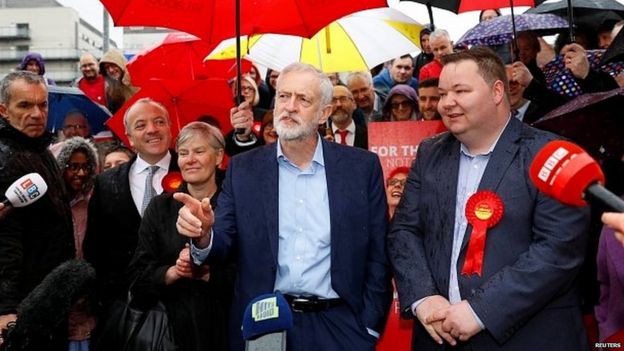
- The Conservatives have lost control of 19 councils – including Peterborough, Basildon and St Albans. Labour has lost control of three – Hartlepool, Bolsover and Wirral
- Labour has also lost its mayoral post in Middlesbrough to an independent
- The Conservatives have won two councils – Walsall and North East Lincolnshire – both of which had no party with overall control before
- The Liberal Democrats have gained eight councils – including Winchester, North Norfolk, Cotswold, Bath and North East Somerset and Vale of White Horse
- Labour has won one council – Trafford – a former Conservative stronghold
- Where independent candidates have been standing, they have won on average 25% of the vote – and independents have taken control of two councils – Ashfield and North Kesteven
- The Green Party has gained 49 councillors so far, while UKIP has lost 54
- Turnout is averaging just one or two points below the last two local elections, reversing predictions of a major drop off in voters

Labour’s loss of seats to the Lib Dems in places such as Sunderland and Bolsover have led to calls from pro-Remain MPs for it to decisively throw its weight behind another referendum.
Labour MP Bridget Phillipson, who supports another referendum, said that Brexit “was the elephant in the room”.
“I fear Labour’s position has been too hesitant and lacking in clarity over the past few months, depressing support among our voters at a time when they expect strength and leadership from my party rather than fudge,” she said.
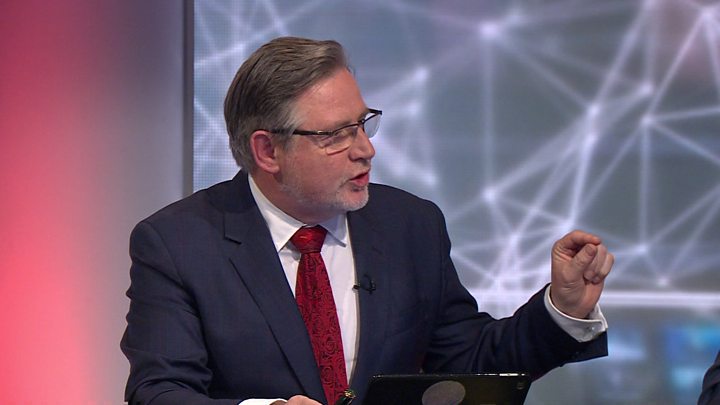
But Mr Corbyn said his policy remained to “bring together” Leave and Remain voters behind a negotiated exit from the EU.
“Our policy is that we are the only party that speaks to people however they voted in 2016 and to try and ensure we defend jobs and working conditions,” he said.
He suggested “local factors” had been to blame for the loss of seats in places like Walsall and Hartlepool and the legacy of cuts to services made by the Conservative-Lib Dem coalition.
“I am very sorry we lost them (seats). We will fight and win them back…Of course we wanted to do better. Of course we did. We always want to do better.”
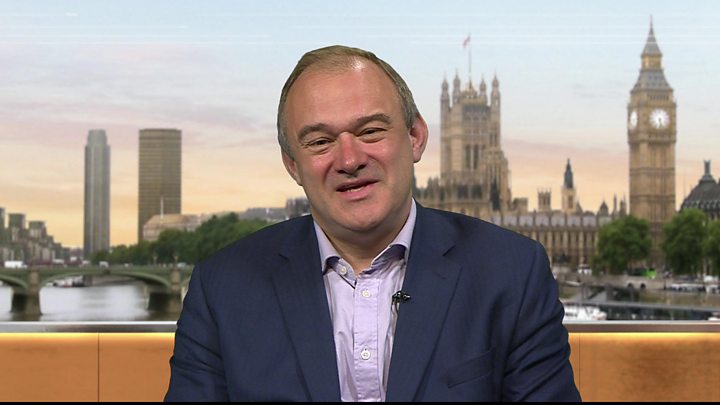
Green Party co-leader Sian Berry said she was confident her party would end the day with a “record number of councillors on a record number of councils”.
She told BBC Breakfast the Greens were not simply benefiting from a protest vote over Brexit and their gains reflected “huge new concerns” about climate change as well as the strength of their local campaigning on a range of issues.
UKIP is down by about 50 seats on its 2015 performance so far but party leader Gerard Batten hailed its “great result” in Sunderland, where it added three seats.
This is the biggest set of local elections in England’s four-year electoral cycle, with more than 8,400 seats being contested.
A further 462 seats are up for grabs in Northern Ireland.


It’s not over – it’s far, far from over.
Many hundreds of seats are yet to declare. Many individual political stories yet to be told. So be very aware – the final shape of wins and losses for the government and the main opposition is unclear.
But at this stage of the morning, there is one message to both of the main parties at Westminster from this enormous set of elections – it’s not us, it’s both of you.
Council leaders from both parties are saying openly that voters can’t trust them any more because of how they have dealt with Brexit. This is a verdict on the competence of Westminster’s biggest parties – on the mess of handling Brexit.

Of the 248 elections in England, 168 have been district councils which are in charge of setting and collecting council tax, bin collections, local planning and council housing.
There were also elections taking place for 47 unitary authorities and 33 metropolitan boroughs which look after education, public transport, policing and fire services, as well as all the services of district councils.
In Northern Ireland, councils are responsible for services including local planning and licensing, waste collection and enforcing safety regulations to do with food, workplaces and the environment.
Either search using your postcode or council name or click around the map to show local results.Type in 2 or more characters for results.
England scoreboard
| PARTY | COUNCILLORS | CHANGE +/- |
|---|---|---|
| Conservative | 1335 | -493 |
| Labour | 1015 | -75 |
| Liberal Democrat | 610 | +326 |
| Green | 67 | +55 |
| UKIP | 18 | -53 |
| Others | 391 | +240 |
Councillors change compared with 2015See results for Northern IrelandAll councils Changed councils
- LAB
- CON
- LD
- IND
- Results not in
- No election
- No overall control
After 121 of 259 councils

